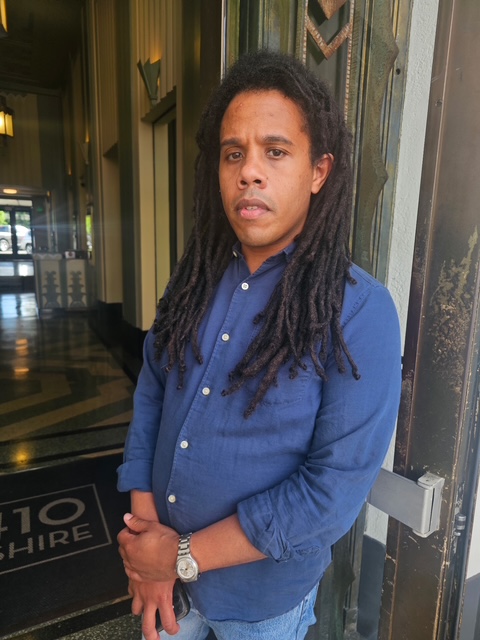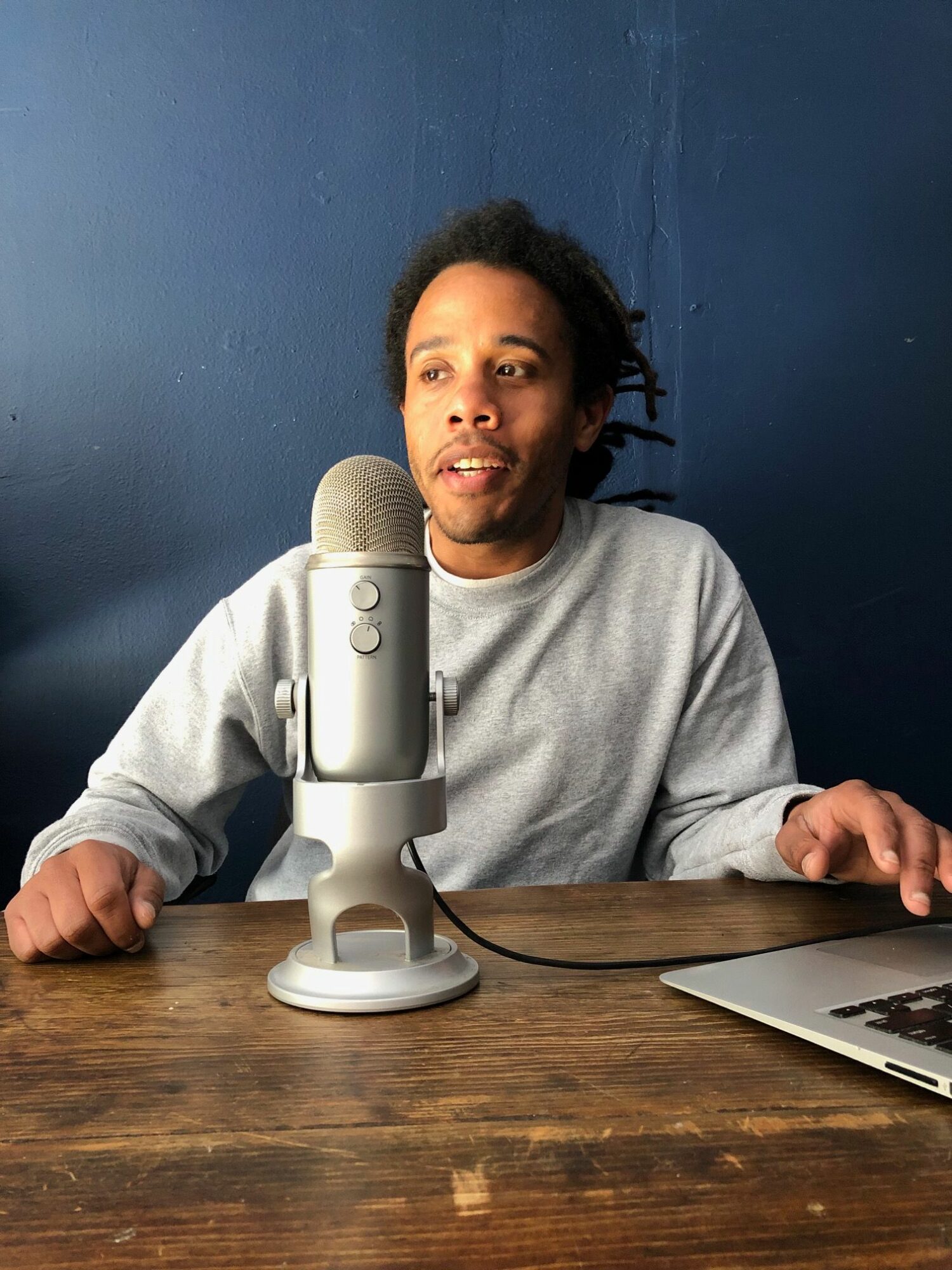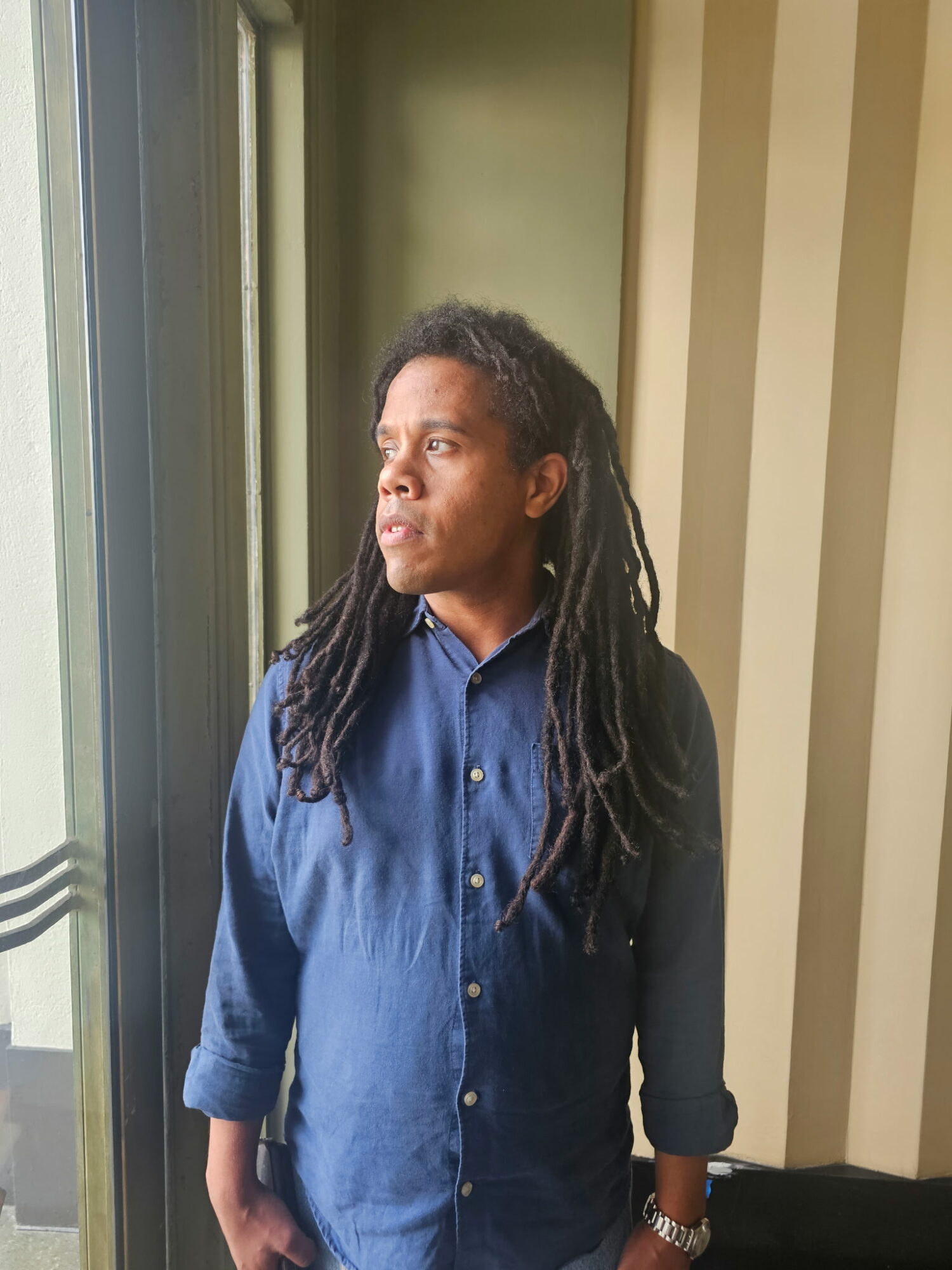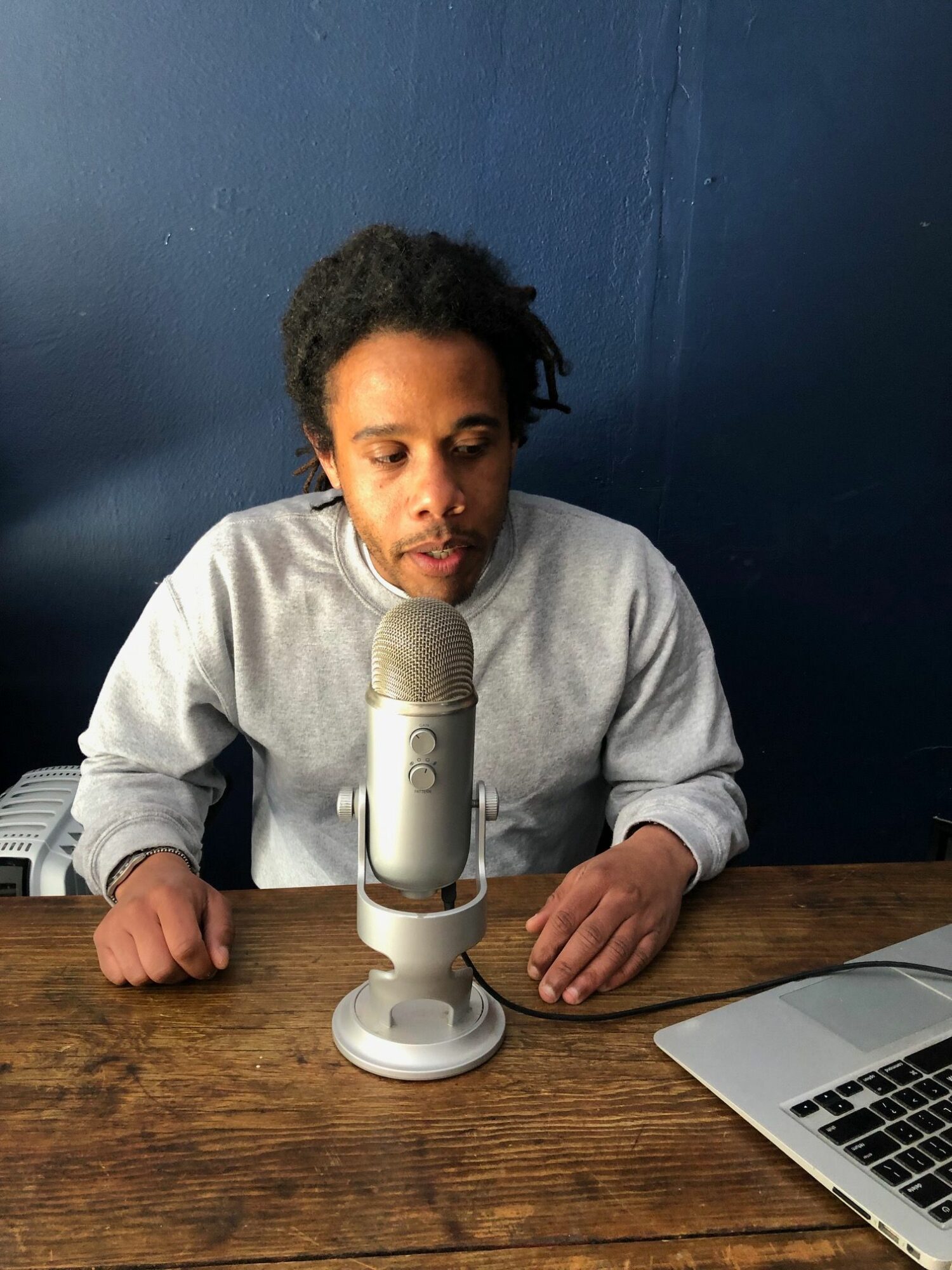

We recently had the chance to connect with Marley Powell and have shared our conversation below.
Marley, so good to connect and we’re excited to share your story and insights with our audience. There’s a ton to learn from your story, but let’s start with a warm up before we get into the heart of the interview. Who are you learning from right now?
My creative practice has been deeply shaped by changes this past year after the loss of my mom. While I wasn’t producing as much work, I saw myself as laying around but realized that I was absorbing a lot and learning to pay attention to small joys and to the way others devote themselves to their craft. This past year was about reshaping my creative model. Approaching this past year has been one of seeking out knowledge. I’ve been taking classes in woodworking, pottery, and even enrolling in courses at my local college. I came to see that I appreciate proficiency in a time when we are witnessing the guardrails of expectations being loosened and we head into a steady, invisible drift away from the confidence in expertise. I am learning from people who are experts in their own craft. What inspires me is the way these teachers and practitioners bring precision and dedication to their art, and then translate that knowledge into teaching, but also coming to appreciate in a new way how focus and discipline transform a creative life.
Can you briefly introduce yourself and share what makes you or your brand unique?
I’m a writer and researcher based in Los Angeles, and my work focuses on uncovering histories that are often overlooked. I appreciate the strange, the forgotten, or the oddly specific stories that, when you dig into them, reveal something universal about the present. I look for stories that resonate with the challenges we’re facing now, whether that’s around identity, community, technology, or the way cultures shift over time. That curiosity has only deepened in the past year, as I’ve stepped into new creative practices in an amateur capacity, like woodworking and pottery, both of which reminded me how much we can learn from the specificity of craft and from the way information is passed down. History isn’t just about what happened. It’s about how human beings, across generations, find ways to keep moving forward.
Okay, so here’s a deep one: What breaks the bonds between people—and what restores them?
I think what breaks bonds between people is often a mix of distance and silence. When we stop listening to each other, or when pain makes us retreat inward, the connections that once felt strong can start to splinter. Sometimes it’s neglect which causes a slow erosion that comes from not showing up in the small and everyday ways. What restores those bonds, though, is usually just as simple: presence and attention. A shared experience can help you bridge that distance in yourself. I try to find in my work the things which resonate with me and build off of them in the hopes that others will see those sometimes small experiences that can be the thing which builds the bridge. After losing my mom, I’ve learned that bonds are restored most powerfully through vulnerability by allowing others to see us in our fragility, not just in our strength. Bonds break when we stop tending to them, but they’re restored when we treat connection itself as a daily act of craft.
Was there ever a time you almost gave up?
I had spent years working on a book, Boomer, pouring myself into it, only to watch it stall before publication. At the time, it felt devastating not just because of the lost opportunity, but because I began to wonder if it meant the end of the line for me as a writer. If no one wanted my work, or didn’t connect with it, did that mean my voice didn’t matter? Was there no place for what I had to say? For a while, that silence weighed on me heavily. It was tempting to equate the outcome of one project with the value of my whole creative practice. It wasn’t just that I realized writing and all creativity isn’t only about external validation, but I understood it’s about process, discovery, and the ways the ups and downs shape how I see the world. Boomer not being published didn’t erase the years of learning, the depth of research, or the joy of creating it, though the rejection blunted my curiosity for anything, and in turn, slowed my creative work down. Creative life isn’t linear. There are detours, disappointments, and even dead ends, but those don’t have to define the journey. What mattered was choosing to keep writing, to stay curious, and to let myself be reshaped by both the losses and the new possibilities they create. I stopped thinking of my book not being published as the end of something and started to see it as part of a larger journey. Once I found myself back on the journey I was able to find my voice and drive again.
So a lot of these questions go deep, but if you are open to it, we’ve got a few more questions that we’d love to get your take on. What’s a cultural value you protect at all costs?
Freedom of expression is integral as a cultural value. Without it we lose the foundation of how we understand ourselves and each other, and we lose not just the ability to speak, but the ability to imagine, to experiment, to connect. Expression is what allows ideas to circulate, even the odd, overlooked, or uncomfortable ones, and those are often the stories that reveal the most about who we are. I’ve learned that silencing myself internally is a kind of captivity. After my faltering in publication, I convinced myself that my creative work was meaningless. Stifling expression, whether by external censorship or internal doubt, is to kill possibility before it has a chance to grow. Freedom of expression ensures that we don’t just inherit the world passively, but participate in shaping it. Without it, we live in someone else’s version of reality.
Okay, so let’s keep going with one more question that means a lot to us: What light inside you have you been dimming?
In the midst of grief, the belief that my life had changed caused a shift to all of my creative passions. It settled in heavily as if dimming my creative spark was just another part of the loss I had to accept. But what I’ve come to understand is that allowing even the smallest glimmer of that light to fade is dangerous. It doesn’t just pause the work; it begins the slow dying of a part of your life. What I’ve learned since then is that even dimming a small glimmer of creative energy comes at a cost. It kills my spirit, makes me feel cut off from myself. I found that I had tied art to a false reality where your art only matters if it’s validated and where expression is only worthwhile if someone else names it as such. Even if I’m writing a draft that may never be read, I’m keeping the spark alive. I’ve realized that creativity itself is what restores me and that it is what keeps me connected to possibility. And as long as I tend to it, even in the smallest ways, it’s quietly, insistently, still growing.
Contact Info:
- Website: https://marleypowell.net

















